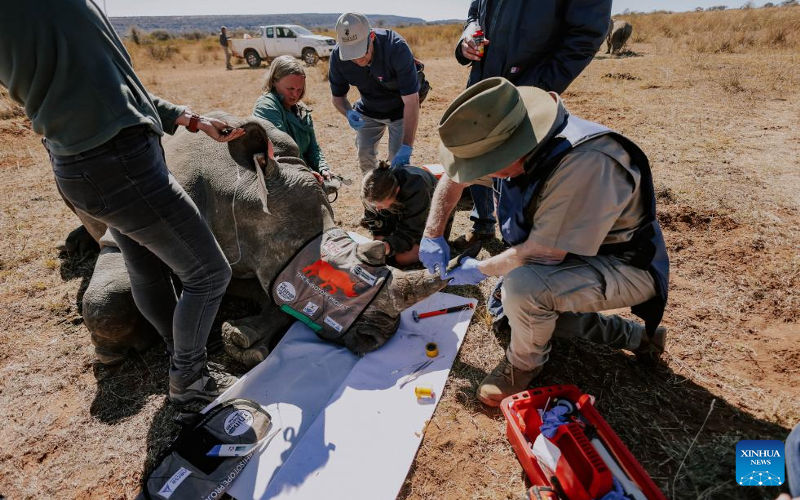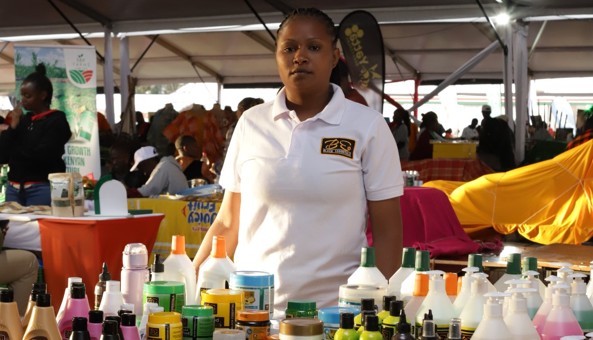South Africa starts radioactive isotopes injection to fight rhino poaching

Last year, about 20 rhinos at a sanctuary were injected with isotopes during early trials that led to the Thursday launch, with tests showing that the procedure poses no harm to the rhinos.
South African researchers have started injecting small amounts of detectable radioactive isotopes into rhino horns to deter poachers and traffickers, according to a statement released Friday by the University of the Witwatersrand (Wits University).
The Rhisotope Project, launched on Thursday, is expected to become fully operational by August in a bid to curb the high levels of illegal rhino poaching in the country.
More To Read
- Over 60,000 African penguins died as sardines disappeared from South Africa’s waters, study finds
- Report links 60,000 penguin deaths to sardine decline, poor fisheries management
- Zuma’s daughter resigns from Parliament amid claims she sent South African men to fight in Russia-Ukraine war
- Inside the rise of news influencers transforming media in Kenya, Nigeria and South Africa
- Ramaphosa hits back after Trump says South Africa won’t be invited to 2026 G20 summit
- G20: South Africa hosts summit in shadow of US boycott
According to the statement, the project aims to disrupt the illegal rhino horn trade by embedding low-level radioactive isotopes into the horns, while these isotopes can be detected by radiation scanners at border posts and customs checkpoints worldwide.
Leading the project are researchers from Wits University in collaboration with the International Atomic Energy Agency (IAEA).
Last year, about 20 rhinos at a sanctuary were injected with isotopes during early trials that led to the Thursday launch, with tests showing that the procedure poses no harm to the rhinos.
"We have demonstrated, beyond scientific doubt, that the process is completely safe for the animal and effective in making the horn detectable through international customs nuclear security systems," said Wits University Professor James Larkin, who is also the chief scientific officer of the Rhisotope Project.
The tests also confirmed that individual horns can be detected even inside full 40-foot shipping containers. "Even a single horn with significantly lower levels of radioactivity than what will be used in practice successfully triggered alarms in radiation detectors," said Larkin.
South Africa is home to the largest rhino population in the world, with around 16,000 rhinos.
According to the International Union for Conservation of Nature, the white rhino is classified as "near threatened," and the black rhino is listed as "critically endangered."
In March, Minister of Forestry, Fisheries and the Environment Dion George reported that between January and February 2024, 420 rhinos were poached in South Africa, with 320 being killed on state-owned properties and 100 on privately owned parks, reserves, or farms.
"Our goal is to deploy the Rhisotope technology at scale to help protect one of Africa's most iconic and threatened species. By doing so, we safeguard not just rhinos but a vital part of our natural heritage," said Rhisotope Project Chief Executive Officer Jessica Babich.
Top Stories Today














































